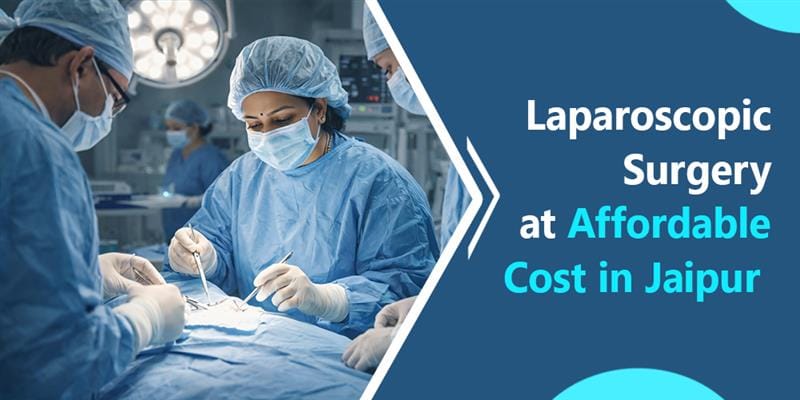Priya had been bleeding for 15 days straight when her mother finally dragged her to the gynecologist. “It’s normal,” she’d been telling everyone, even though she was secretly terrified. Three months later, she walked out of a Jaipur hospital after a 45-minute laparoscopic procedure that solved her fibroid problem completely.
Here’s the thing nobody talks about: getting laparoscopic gynaecological surgery isn’t just about finding a doctor and showing up. It’s about navigating a healthcare system where your cousin’s friend’s recommendation might matter more than Google reviews.
When Your Body Stops Playing Nice
The Pain That Doesn’t Listen to Logic
Meera thought she was being dramatic. The pain in her pelvis would show up at 3 AM, wake her up, and disappear by morning. Her family kept saying, “Periods are supposed to hurt.” But when she couldn’t sit through a movie without doubling over, she knew something was seriously wrong.
Here’s what doctors won’t tell you upfront: endometriosis affects 1 in 10 Indian women of reproductive age, but the average diagnosis takes 7-12 years. That’s because we’re taught to normalize pain that would send men straight to the emergency room.
The red flags that actually matter:
- Pain that makes you cancel plans regularly
- Bleeding that soaks through a super tampon plus pad in under two hours
- Bloating that makes people ask if you’re pregnant
- Painful sex (yes, this counts as a medical symptom)
- Fertility struggles after six months of trying
Finding Your Surgical Match
The Consultation That Actually Matters
Walk into that first appointment with these three questions:
- “How many surgeries exactly like mine have you done in the past year?”
- “What’s your rate of converting to open surgery?” (Good laparoscopic surgeons have conversion rates under 5%)
- “Can I speak with someone who had this surgery with you?”
If a surgeon gets defensive about these questions, walk out. The best laparoscopic surgeon in Jaipur will have these numbers readily available and patient references willing to share their experiences.
The Money Reality Check
What Laparoscopic Surgery Cost In India Actually Includes
Nobody prepared Sunita for the ₹15,000 “miscellaneous charges” that appeared on her final bill. These included everything from surgical gloves to the CO2 gas used during surgery. You should work with your doctor to understand the laparoscopic surgery cost you have to bear.
Pre-Surgery: The Preparation Nobody Explains
Tests That Actually Serve a Purpose
Your surgeon orders specific tests for specific reasons, not just to inflate costs. Here’s what each test tells them:
CA-125 blood test: Elevated levels might indicate endometriosis or ovarian cysts.
Hormone levels: Help determine the best timing for surgery.
Clotting studies: Ensure you won’t bleed excessively during surgery.
Chest X-ray and ECG: Required by anesthesiologists, not negotiable
The Scheduling Strategy
Timing your laparoscopic surgery around your cycle can affect both the surgery outcome and your recovery. For endometriosis surgery, many surgeons prefer operating in the first half of your cycle when endometrial tissue is less active.
Surgery Day: What Really Happens
The 6 AM Phone Call That Changes Everything
Hospitals call the night before or early morning to confirm your surgery time. Sometimes, to move it up or delay it by hours. Have flexible arrangements with your support person; rigid scheduling creates unnecessary stress.
What Your Family Needs to Know
Your designated family member will get updates during surgery, but they might not understand medical terminology. Ask your surgeon beforehand what updates they typically provide, so your family knows what to expect.
Most laparoscopic surgeries take 45 minutes to 2 hours. If it’s taking longer, it doesn’t necessarily mean complications; sometimes, surgeons discover additional issues they can fix during the same procedure.
Recovery: The Reality vs. The Brochure
Week One: What Nobody Tells You
The shoulder pain from surgical gas can be worse than the actual surgical site pain. Sleep propped up on pillows for the first few nights, which helps the gas dissolve faster.
You might feel emotional or weepy for a few days. This isn’t just about pain or medication; it’s a normal response to anesthesia and the stress your body has been under.
The Two-Week Mark: Getting Your Life Back
Most women underestimate how quickly they’ll feel normal again. Richa went back to her teaching job after 8 days and felt completely fine. The key is listening to your body, not arbitrary timelines.
You can typically:
- Drive after one week (if you’re not taking strong pain medications)
- Return to office work after 5-7 days
- Lift your toddler after 10-14 days
- Resume normal exercise after 3-4 weeks
Common Complications and Red Flags
When to Actually Worry
Call your surgeon immediately if you experience:
- Fever over 101°F that doesn’t respond to medication
- Heavy bleeding (soaking a pad every hour for 2+ hours)
- Severe abdominal pain that gets worse instead of better
- Signs of infection at surgical sites (increasing redness, warmth, pus)
The Follow-Up Appointment You Can’t Skip
Your post-operative check-up isn’t just a formality. Your surgeon needs to ensure you’re healing properly and address any concerns before they become problems.
Come prepared with questions about resuming activities, what symptoms are normal, and when you should schedule your next routine gynecological care.
Frequently Asked Questions
Q: Can I eat normally after laparoscopic surgery?
Start with clear liquids and progress to normal foods as tolerated. Most women can eat regularly within 24 hours, but avoid heavy, greasy foods initially.
Q: Will I need help at home, and for how long?
Yes, for the first 2-3 days, especially with household chores and childcare. You’ll tire easily initially, even though you feel relatively good.
Q: How visible will my scars be?
Laparoscopic scars are typically 5-10mm long. After six months, they’re usually barely visible thin lines. Good wound care in the first few weeks makes a significant difference.
Q: Can I postpone surgery if I get my period?
Depends on the procedure. Some surgeries are actually better performed during menstruation, while others should be avoided. Your surgeon will guide you based on your specific case.
Q: What if I need to travel after surgery?
Avoid long flights for 2-3 weeks due to blood clot risk. Car travel is usually fine after one week, but take frequent breaks to walk around.
Q: Will my insurance cover all post-operative medications?
Usually not completely. Budget an additional ₹2,000-₹5,000 for medications and follow-up care not covered by insurance.
Q: How do I know if my surgeon is really experienced with laparoscopic procedures?
Ask about their annual case volume, training background, and conversion rates to open surgery. Experienced surgeons readily share this information.
Getting laparoscopic gynaecological surgery requires navigating our unique healthcare landscape with its mix of excellent medical expertise and administrative challenges. The key is preparation, realistic expectations, and building the right support team.






